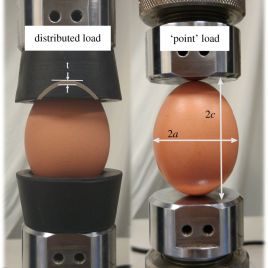In the era of the Quantified Self, it comes as no surprise that, along with step-counters and heart-rate monitors for adults, electronic sensors for infants are marketed as a useful child care aid to parents. But a recent analysis of several types of consumer-use baby monitors concluded these electronics show little benefit and may even put infants at risk. The sensors typically monitor vital signs such as the baby’s heart rate and oxygen levels, and promise to provide a peace of mind for the parents. But researchers say that these electronics could actually do the opposite, giving the parents of healthy infants too much information that’s ripe for misinterpretation. The study analyzed five models of baby monitors currently on the market. Study authors found no evidence the devices are accurate or effective in predicting or preventing health issues in healthy infants.
Authors:
Christopher P. Bonafide, David T. Jamison, Elizabeth E. Foglia
Corresponding author:
Christopher P. Bonafide, Center for Pediatric Clinical Effectiveness, Children’s Hospital of Philadelphia, Email: bonafide@email.chop.edu
Original paper published in JAMA on January 24, 2017.

